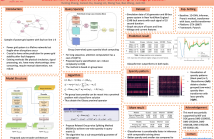
- Read more about GlassoFormer: a Query-Sparse Transformer for Post-Fault Power Grid Voltage Prediction
- Log in to post comments
We propose GLassoformer, a novel and efficient transformer architecture leveraging group Lasso regularization to reduce the number of queries of the standard self-attention mechanism. Due to the sparsified queries, GLassoformer is more computationally efficient than the standard transformers. On the power grid post-fault voltage prediction task, GLassoformer shows remarkably better prediction than many existing benchmark algorithms in terms of accuracy and stability.
- Categories:
 27 Views
27 Views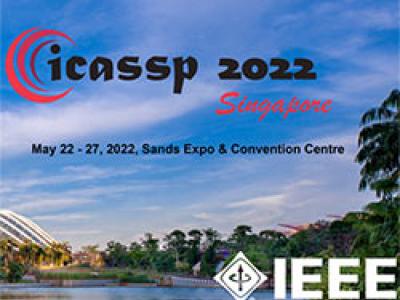
- Read more about CDX-Net: Cross-Domain Multi-Feature Fusion Modeling via Deep Neural Networks for Multivariate Time Series Forecasting in AIOps
- Log in to post comments
CDX-Net.pdf
- Categories:
 35 Views
35 Views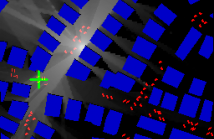
- Read more about Slides of "LocUNet: Fast Urban Positioning Using Radio Maps and Deep Learning"
- Log in to post comments
This paper deals with the problem of localization in a cellular network in a dense urban scenario. Global Navigation Satellite Systems (GNSS) typically perform poorly in urban environments, where the likelihood of line-of-sight conditions is low, and thus alternative localization methods are required for good accuracy.
- Categories:
 32 Views
32 Views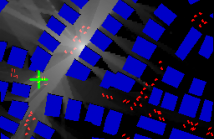
- Read more about Poster of "LocUNet: Fast Urban Positioning Using Radio Maps and Deep Learning"
- Log in to post comments
This paper deals with the problem of localization in a cellular network in a dense urban scenario. Global Navigation Satellite Systems (GNSS) typically perform poorly in urban environments, where the likelihood of line-of-sight conditions is low, and thus alternative localization methods are required for good accuracy.
- Categories:
 24 Views
24 Views
- Read more about Adversarial Learning in Transformer Based Neural Network in Radio signal classification
- Log in to post comments
- Categories:
 22 Views
22 Views
- Read more about THE POSTER OF WEAKLY SUPERVISED POINT CLOUD UPSAMPLING VIA OPTIMAL TRANSPORT
- Log in to post comments
poster.pdf
- Categories:
 7 Views
7 Views
- Read more about THE SLIDE OF WEAKLY SUPERVISED POINT CLOUD UPSAMPLING VIA OPTIMAL TRANSPORT
- Log in to post comments
- Categories:
 7 Views
7 Views
- Read more about SERAB: A MULTI-LINGUAL BENCHMARK FOR SPEECH EMOTION RECOGNITION
- Log in to post comments
The Speech Emotion Recognition Adaptation Benchmark (SERAB) is a new framework to evaluate the performance and generalization capacity of different approaches for utterance-level SER. The benchmark is composed of nine datasets for SER in six languages. We used the proposed framework to evaluate a selection of standard hand-crafted feature sets and state-of-the-art DNN representations. The results highlight that using only a subset of the data included in SERAB can result in biased evaluation, while compliance with the proposed protocol can circumvent this issue.
- Categories:
 18 Views
18 Views
Convolutional Neural Networks have been extensively used for solving many vision problems. However, due to high memory and computational requirements, deployment of these models on edge devices is limited. Many embedded friendly models such as MobileNet, ShuffleNet, SqueezeNet, and many more are proposed to serve this purpose. But these models are still not compact enough to deploy on edge devices. The popular metric-based pruning methods (which are aimed at pruning insignificant and redundant filters) could achieve limited compression for embedded friendly models such as MobileNet.
- Categories:
 27 Views
27 Views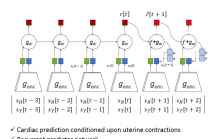
- Read more about Contrastive Predictive Coding for anomaly detection of fetal health from the cardiotocogram
- Log in to post comments
Fetal well-being during labor is currently assessed by medical professionals through visual interpretation of the cardiotocogram (CTG), a simultaneous recording of Fetal Heart Rate (FHR) and Uterine Contractions (UC). This method is disputed due to high inter- and intra-observer variability and a resulting increase in the number of unnecessary interventions. A method for computerized interpretation of the CTG, based on Contrastive Predictive Coding (CPC) is presented here.
- Categories:
 20 Views
20 Views